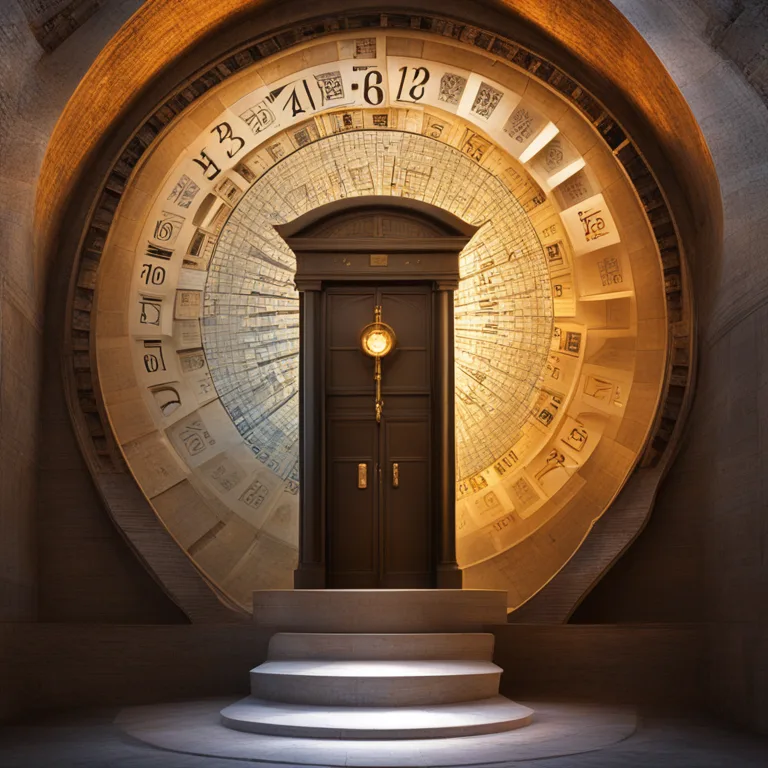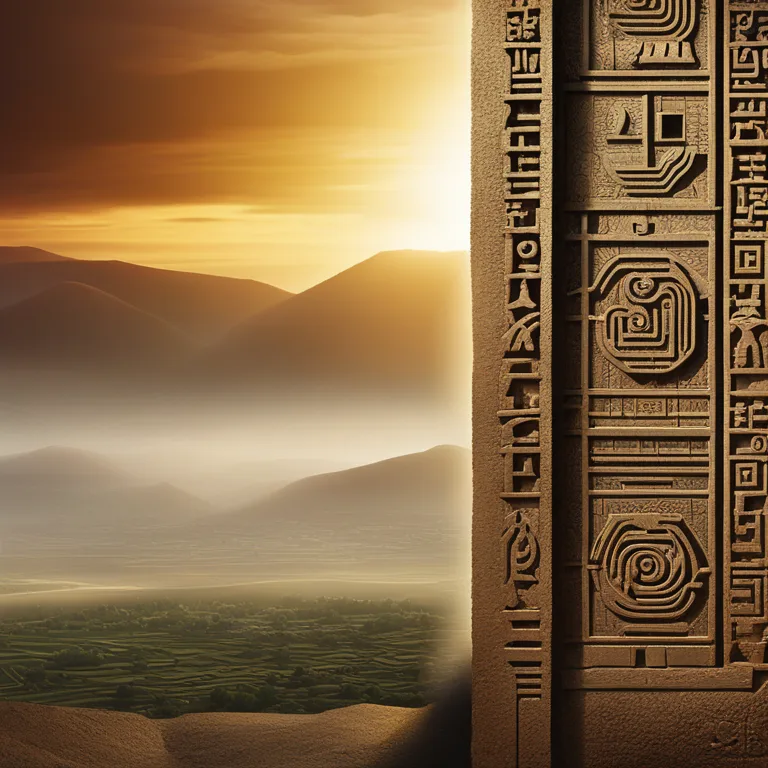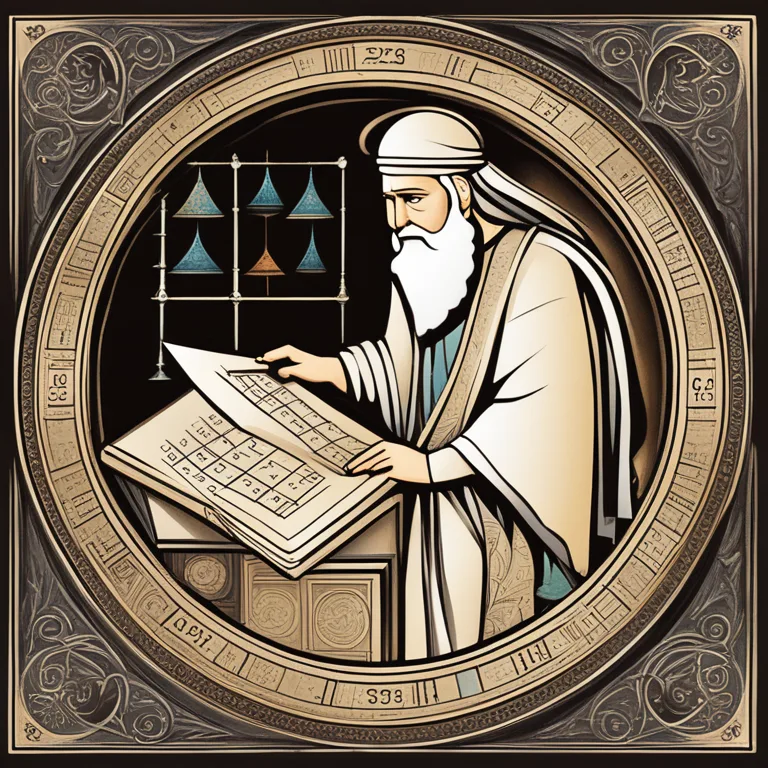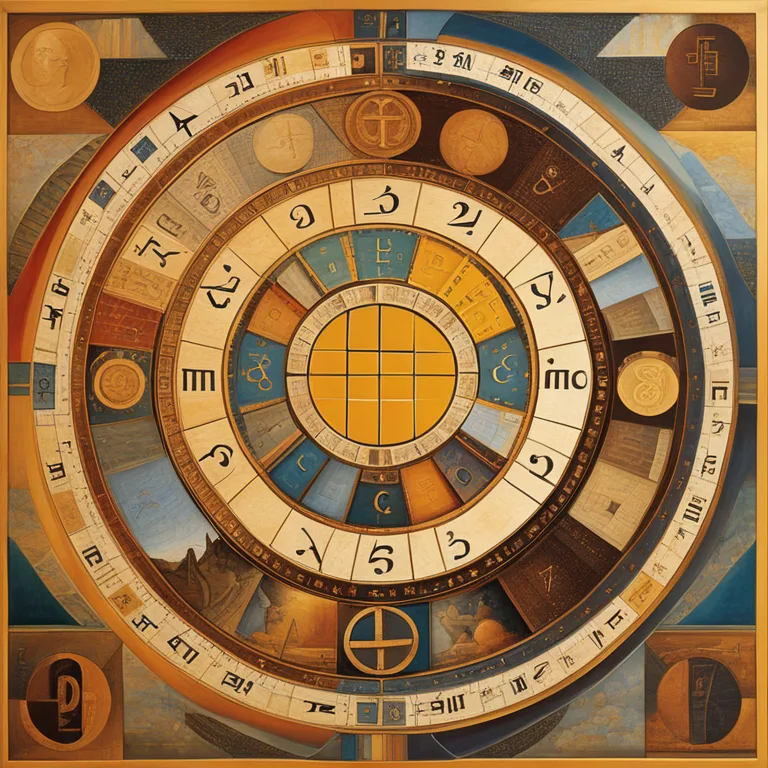
The Roots Of Numerology
Discover the ancient roots and key figures who pioneered the mystical practice of numerology.
article by Sofia Ferguson
The Ancient Foundations
Numerology, the mystical study of numbers and their influence on human life, has a lineage that extends far back into antiquity. Its earliest recorded systems emerge from the cradles of civilization, where Sumerians and Babylonians ascribed divine meaning to numbers. The Chaldean system, which perhaps is the closest precursor to modern-day numerology, was cultivated in the same fertile crescent. This esoteric science was not isolated to the West; in the East, Chinese, Japanese, and Indian cultures developed their own interpretations and applications of numeric symbolism, which have been interwoven into their spiritual and daily practices.

Pythagoras: The Father of Numerology?
While numerology's beginnings are embedded in the mists of time, the Greek philosopher Pythagoras often receives credit as the founding father of western numerology as we recognize it. Around 500 BCE, Pythagoras established a school where numbers took on a mystical significance, and each digit from one to nine was imbued with its own spiritual energy. He postulated that the universe could be understood through the harmony of numbers, a belief that has echoed through the ages. However, it's pivotal to note that Pythagoras did not document his teachings, and much of what is ascribed to him was recorded after his lifetime.

Further Evolution Across Cultures
Following Pythagoras, the Romans, Hebrews, and early Christians continued to ponder the esoteric aspects of numbers. The Kabbalah, a mystical Jewish tradition, includes a numerological method known as Gematria, which assigns numerical value to Hebrew letters. The decoding of the Bible using numerology became a practice of esoteric significance, particularly prevalent within the study of the Book of Revelation. The Arabic world also played a role in numerology's development as Islamic scholars preserved and expanded upon Greek and Roman numeral philosophies in the middle ages.

Modern Numerology's Rise
The term "numerology" and the practice as we tend to recognize it today began to take more precise shape in the late 19th and early 20th centuries. The modern numerology system most prevalent in the west largely draws from the works of L. Dow Balliett and Dr. Julian Stenton. Stenton is credited with coining the term "numerology," which brought a renewed visibility to the practice in modern times. The formulation and popularization of this system of numerology integrated notions from various philosophical and religious backgrounds, making it eclectically comprehensive.

Numerology in the Digital Age
As we moved into the digital era, numerology adapted and found new mediums for dissemination and application. The ancient practice has been remolded by interest in the New Age movement and is now widely accessible through books, online courses, and apps. Innovation in algorithms allows for personalized numerology readings at the click of a button, and social media platforms have brought numerologists a global audience. Ongoing research into psychology and pattern recognition hypothesizes explanations for why humans seek meaning in numbers, grounding the ancient practice in contemporary conversations.
The Future of Numerology
In 2024 and beyond, as quantum physics and other advanced scientific fields continue to evolve, they may offer new insights into the mathematics of the universe. Coupled with a rising interest in spirituality, this may lead to novel understandings and applications of numerology. While the beginnings of numerology are shrouded in the enigma of ancient history, its capacity for adaptation and integration within various facets of society underscores its enduring appeal. Whether as a spiritual guide, self-help tool, or source of entertainment, numerology's legacy continues to thrive and expand.
Published: 12/21/2023
Modified: 12/21/2023
More predictions
Come back here soon to learn more about yourself and your future


Insights for Personal Year 2 in Numerology
Discover the resonances and potential of Personal Year 2 in numerology, guiding personal growth and relationships.


The Influence of Numerology's Power
Discover the significance of numerology's power numbers and how they impact your life's journey.


The Essence of Numerology's Spiritual Dimensions
Delve into numerology's spiritual meanings and discover how numbers shape your spiritual journey and destiny.